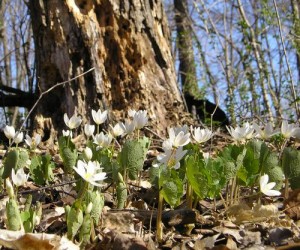 Spring has returned. The Earth is like a child that knows poems.
Spring has returned. The Earth is like a child that knows poems.Rainer Maria
Nathaniel Hawthorne
Agriculture: Middle English, from Middle French, from Latin agricultura, from ager field + cultura cultivation.
We worked small plots, or gardens, before the advent of fields or large scale cultivation. I have a book in my library that I’ve not read (ok, I have a lot of books in my library I’ve not read), but this one has the title Human Scale. Horticulture is human scale cultivation; agriculture is large scale cultivation.
As I’ve thought back over my life, I’ve noticed a common thread in many of the things I’ve done and co-operative efforts to which I’ve given energy: they are an attempt to wrest human scale decision making authority and human scale work back from impersonal bureaucracies or larger scale political and economic entities. Horticulture fits.
It fits in particular because it is a very old, but modern human defining act. Along with art, hunting, gathering and living in families, it is one of the oldest of human activities. We stay with it for far more than the pragmatic purpose of growing food, though that can be a primary purpose. Hawthorne got it; we garden because we take part in the process of creation.
We plant the seeds, just as they did long ago, perhaps after having scratched the earth with a sharp stick. Then, as Hawthorne writes we go out to see what, if anything, has happened since we were there last.
Yesterday I walked the whole of our tended beds. The poplar trees moved last fall are still alive. Two young oaks that looked good last year became deer or rabbit food, gnawed right down to the sliced garden hose I used to cover their base. Oh, well. The fruit trees I think are alive though I’ve not gone through a winter with them and don’t know them as well as some others.
The garlic had not come up and it had by this time last year. That made me sad. This year I planted cloves from last year’s crop. Did I do something wrong? Impatient I dug with a finger into the still cold soil. There, an inch or so below the surface, maybe two, was a pale lance of garlic headed for the surface. Relief.
This week cold weather plants need to go in the soil. The daffodils and tulips have begun to be well above the surface. The garden has begun to awaken, but it’s still a bit sleepy. Easy to understand.
